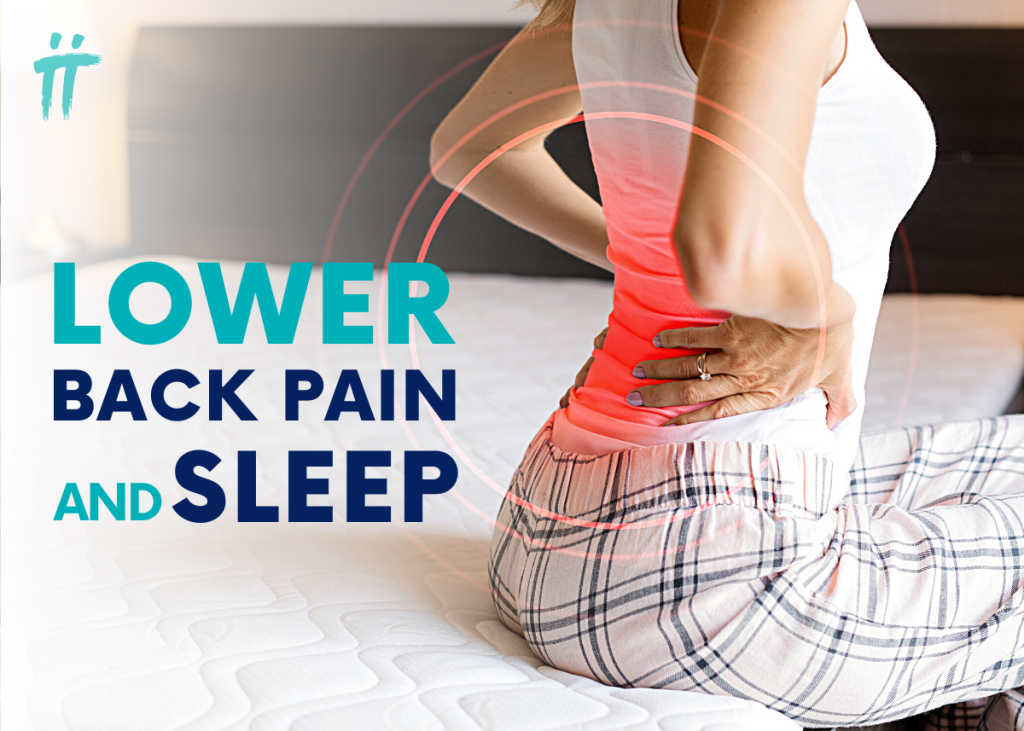
There is a close relationship between lower back pain and sleep. Lower back pain interferes with falling asleep and deep sleep during the night, while not sleeping well can lead to increased pain. In this article, we will explain the reasons for this cycle and how you can break it.
What is the Relationship Between Low Back Pain and Sleep?
Especially at night, when we are trying to fall asleep, we focus more on the pain without realizing it because there are no distractions. This has an extremely negative impact on the transition to sleep. This pain makes it difficult to find a comfortable sleeping position. You may even have to change position frequently during the night.
Inadequate movement and lack of exercise during the day due to pain can also prevent you from benefiting from restful sleep.
In our previous video, we talked about a few exercises that are beneficial for our spinal posture.
How does lack of sleep worsen pain?
During sleep during the night, our body releases a hormone called “Growth Hormone”, which stimulates the regeneration of cells and is needed to heal the body. So this hormone gives our spine a chance to repair itself. However, interrupted or shallow sleep reduces the release of this hormone, which has a negative impact on spinal healing and pain relief.
The ideal sleep duration for most adults ranges from 7 to 9 hours. However, the quality of sleep is as important as the duration. Poor and insufficient sleep makes our nervous system more sensitive to pain. This is why you may feel that your pain is worse the next day.
What to do about low back pain and sleep
Choosing the Right Mattress
A mattress that is too soft, too hard or worn out can also trigger your pain. Beds that are too soft do not support your spine sufficiently during sleep and increase the load on your muscles. A mattress that is too firm can cause pain or soreness at pressure points. While a medium-firm mattress is ideal, there is no one right mattress for everyone. We recommend that you find the best mattress for you by experiencing it.
Relax Your Muscles
Gently stretching the back and lower back muscles before going to sleep and relaxing the muscles by warming them with a hot water bottle or a hot towel will provide some relief from pain. After this pain is relieved, it will be much more comfortable for you to fall asleep.
Relax Your Mind
If the pain you feel makes it difficult for you to fall asleep, calming music and some breathing techniques can distract you and help you fall asleep.
Try Different Sleep Positions
You may not have found the right position that works well for your pain. Here are sleeping positions that reduce pain in some spinal conditions:

Arthritis: Lying on your side with your knees pulled towards your stomach (fetal position) will relieve the structures that cause you to feel pain due to arthritis.
Degenerative Disc Disease: This condition refers to the aging-related wear and tear of the disc structures that act as a cushion between the vertebral bones that make up your spine. If this is the cause of your discomfort, it may be better for you to lie on your stomach. Even a thin pillow under the abdomen will feel even better.
Spinal Stenosis (Narrow Canal): As with arthritis, it is helpful to lie on your side with your knees pulled towards your abdomen. This position will relieve pressure on the nerve root.
Bursitis: Although not related to the lumbar region, inflammation of the structures that act as cushions on your hip bones can cause pain due to pressure when you lie on your side. You can try sleeping on your back or putting a thin pillow on the bed to act as a cushion when you sleep on your side.
Lumbar Herniated Disc: If the herniated disc is pressing on an area near the center of your spinal cord, we recommend that you lie face down with a pillow under your abdomen.
These methods can be useful to cope with the pain you experience during sleep, but it is always best to investigate the underlying cause, make a diagnosis, start treatments and then apply what we have mentioned in our article in line with your doctor’s recommendations.









Leave a Comment